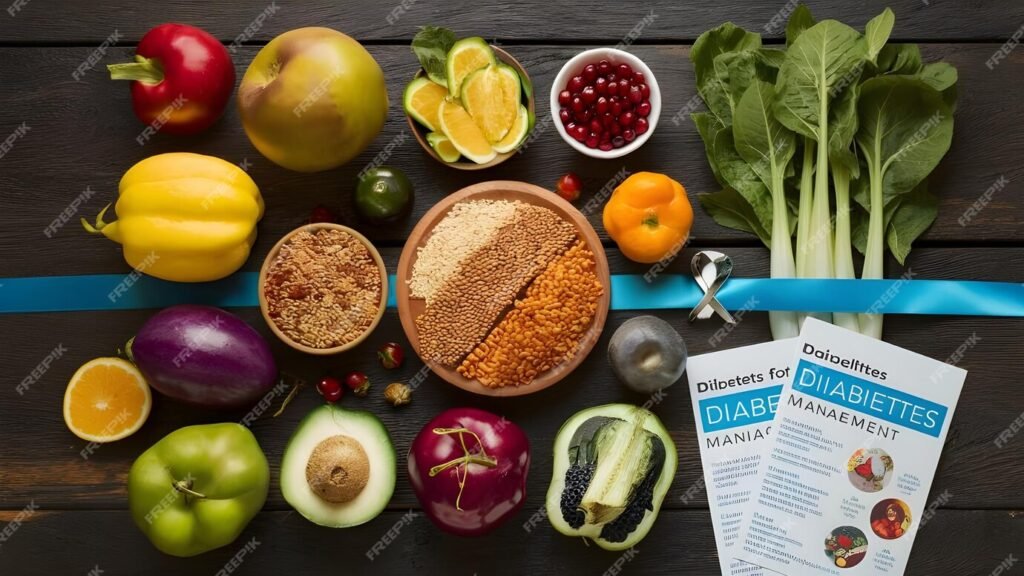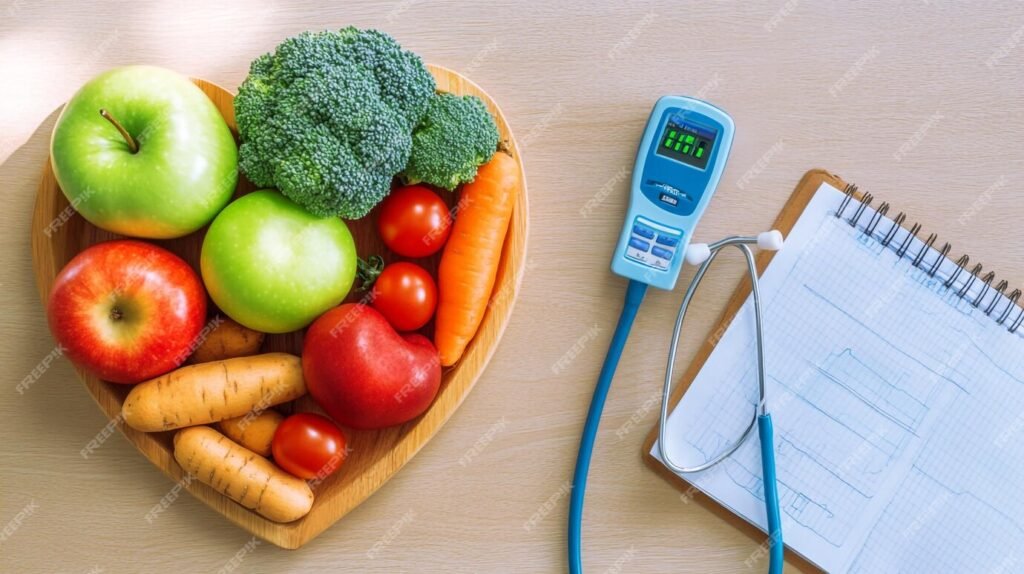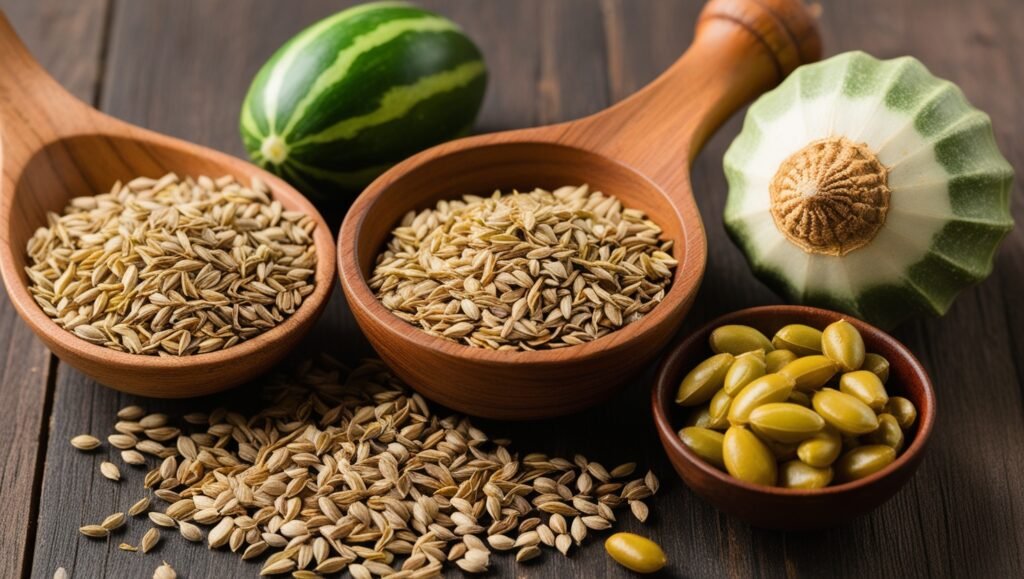Introduction to Natural Remedies for Diabetes in Pakistan
Pakistan’s rich herbal heritage offers a wealth of natural remedies for diabetes in Pakistan, including fenugreek, ginger, and berberine, which have been shown to improve insulin sensitivity and glucose metabolism.
Diabetes is a chronic health condition that has increasingly become a significant public health concern worldwide, particularly in Pakistan. With its prevalence rising dramatically over the past few decades, the Pakistan Diabetes Association estimates that around 10-15% of the adult population currently lives with diabetes. This alarming statistic underscores the urgent need for effective management strategies, especially given the potential complications associated with the disease, including heart disease, kidney failure, and nerve damage.
Table of Contents for Natural Remedies for Diabetes in Pakistan

As awareness of diabetes grows, so does interest in exploring natural remedies that might offer alternative or complementary approaches for managing blood sugar levels. For many, the idea of incorporating natural remedies into their daily routines presents an appealing option, as these alternatives often boast fewer side effects compared to conventional medications. Moreover, many natural remedies have the potential to enhance the overall quality of life for individuals living with diabetes.
This comprehensive guide aims to illuminate the importance of exploring natural remedies for diabetes in Pakistani context. Recognizing the intricate relationship between diet, lifestyle, and diabetes control is crucial for those affected by this condition. By understanding the potential benefits of various natural interventions—such as dietary changes, herbal remedies or supplements, and physical activity—individuals can take proactive steps towards better health outcomes.
In the following sections, we will delve into some of the most effective natural remedies available, shedding light on their mechanisms and varying degrees of efficacy. This exploration will enable readers to develop a more informed perspective on managing diabetes through natural means, empowering them to consider these options alongside traditional treatments as part of a holistic approach to health.
Understanding Diabetes: Types and Symptoms
Diabetes is a chronic metabolic disorder characterized by elevated blood glucose levels. It primarily arises from the body’s inability to produce sufficient insulin or effectively utilize the insulins produced. There are three main types of diabetes: Type 1, Type 2, and gestational diabetes.

Type 1 diabetes is an autoimmune condition that typically develops in childhood or adolescence. In this form of diabetes, the immune system mistakenly targets and destroys insulin-producing beta cells in the pancreas. Individuals with Type 1 diabetes require lifelong insulin therapy to manage their blood glucose levels. Common symptoms include frequent urination, excessive thirst, extreme hunger, fatigue, and blurred vision.
Type 2 diabetes is the most prevalent form of diabetes, often developing in adults but increasingly affecting children and adolescents due to rising obesity rates. In Type 2 diabetes, the body becomes insulin-resistant or does not produce enough insulin. Lifestyle factors such as poor diet, lack of exercise, and genetic predisposition can contribute to its onset. Symptoms may be similar to those of Type 1 diabetes but can also include slow-healing sores, frequent infections, and areas of darkened skin. Early recognition of these symptoms is crucial for effective management.
Gestational diabetes occurs during pregnancy and generally resolves after childbirth. However, it raises the risk of developing Type 2 diabetes later in life for both the mother and child. Pregnant women may experience elevated glucose levels without the typical symptoms associated with diabetes, making regular screening important. Symptoms, when they do occur, can mirror those of Type 1 and Type 2 diabetes.
Understanding the different types of diabetes, along with their symptoms, is vital for early detection and management. Being aware of how diabetes affects the body empowers individuals to seek timely medical advice and adopt lifestyle changes to promote better health outcomes.
The Role and Management of Natural Remedies for Diabetes in Pakistan
Diabetes management is a multifaceted approach that integrates pharmaceutical interventions alongside lifestyle modifications. Increasingly, there has been a growing interest in the role of natural remedies in the management of this chronic condition. For many individuals in Pakistan, these natural options offer an accessible complement to traditional diabetes treatments, addressing dietary habits, and leveraging local resources.

Natural remedies encompass various approaches, including herbal supplements, dietary changes, and the incorporation of physical activities. Many herbs utilized in traditional practices, such as fenugreek and bitter gourd, have shown potential in scientific studies for their ability to moderate blood sugar levels and enhance glucose metabolism. These remedies provide a cost-effective and practical alternative for individuals who may face challenges accessing conventional diabetes medicines.
The scientific basis for employing natural remedies in diabetes management lies in their biochemical activity. For instance, some natural ingredients possess antioxidant properties that combat oxidative stress, often associated with diabetes complications. Additionally, certain herbs may improve insulin sensitivity or increase insulin secretion, supporting the body’s natural regulatory mechanisms. Research into these remedies continues to advance, providing evidence for their effectiveness and safety when used in moderation and under professional guidance.
Moreover, the integration of natural remedies into daily life can foster a holistic approach to health and well-being, which is essential in managing diabetes. This approach encourages individuals to focus not solely on medication but also on lifestyle changes, including improved dietary choices, regular physical activity, and stress management techniques. By embracing these natural strategies, people living with diabetes can potentially enhance their quality of life while maintaining better control over their condition. In the culturally rich landscape of Pakistan, these natural therapies can be both practical and important in diabetes care.
Common Natural Remedies for Diabetes in Pakistan
In Pakistan, various natural remedies have been used common natural remedies for diabetes in Pakistan for many years to manage diabetes effectively. Among these remedies, fenugreek, bitter gourd, and amla stand out due to their medicinal properties and traditional significance.
Fenugreek seeds, known as methi in Urdu, are widely recognized for their ability to lower blood sugar levels. These seeds are rich in soluble fiber, which helps in delaying carbohydrate absorption and improving overall glucose tolerance. Traditionally, fenugreek is consumed by soaking the seeds overnight and then chewing them in the morning on an empty stomach. Alternatively, they can also be ground into a powder and added to meals.

Bitter gourd, commonly referred to as karela, is another potent remedy for diabetes management. This vegetable contains compounds such as charantin, vicine, and polypeptide-p, which have been shown to lower blood sugar levels and improve insulin sensitivity. One of the most popular traditional methods to consume bitter gourd is by juicing it. Many people prefer to drink a small glass of fresh bitter gourd juice each morning, complemented with lemon for flavor. Cooking the vegetable in various dishes is another common practice that preserves its beneficial properties.
Amla, or Indian gooseberry, is prized for its high vitamin C content and antioxidant properties. Amla promotes metabolic health and increases the absorption of insulin, consequently helping to regulate blood sugar levels. In Pakistan, amla is consumed in various forms, including fresh, as a powder, or in the form of juice. A popular routine includes consuming amla juice daily or adding the powdered form to meals for added health benefits.
These natural remedies not only support blood sugar control but also align with traditional practices that have been passed down through generations. Integrating fenugreek, bitter gourd, and amla into one’s diet can serve as beneficial strategies for managing diabetes effectively in a natural way.
Dietary Approaches: Food Choices for Natural Remedies for Diabetes in Pakistan
A balanced diet plays a crucial role in managing diabetes, especially when integrating natural remedies. Individuals in Pakistan can benefit from dietary strategies that emphasize the consumption of whole, unprocessed foods while minimizing those that can lead to spikes in blood sugar levels. Emphasizing a variety of nutrient-dense foods can significantly aid in maintaining optimal health.
To begin with, incorporating whole grains such as brown rice, millet, and whole wheat into meals can support glycemic control due to their low glycemic index. These foods release glucose slowly into the bloodstream, helping to prevent sudden blood sugar increases. Additionally, it is advisable to include a rich assortment of vegetables, particularly non-starchy varieties like spinach, okra, and bitter gourd, known for their natural properties that may aid in diabetes management. Fruits such as guava and berries can also be consumed in moderation, providing essential vitamins and fiber without causing significant fluctuations in blood glucose levels.

On the other hand, certain food items should be limited or avoided to keep blood sugar levels in check. Highly processed foods, refined carbohydrates, and sugary beverages can lead to poor glycemic control and should be kept at a minimum. Traditional sweets, often found in typical Pakistani cuisine, should be substituted with healthier alternatives—like dates or a small serving of nuts—to satisfy cravings in a more health-conscious manner.
Moreover, it is essential to adjust cooking methods to promote better health outcomes; opting for steaming, baking, or grilling instead of frying can make a significant difference. Traditional recipes can be adapted to accommodate these healthier cooking practices while retaining their cultural significance. Overall, a thoughtful approach to food choices, rooted in local dietary traditions, can make a meaningful impact on managing diabetes effectively.
Lifestyle Modifications: Exercise and Stress Management
Managing diabetes effectively requires more than just dietary changes or medication; lifestyle modifications play a critical role in achieving optimal health. One of the most impactful changes individuals can make is incorporating regular physical activity into their daily routines. Exercise is known to enhance insulin sensitivity, which is particularly beneficial for diabetics. Engaging in aerobic activities, such as walking, cycling, or swimming, for at least 150 minutes per week can significantly improve blood glucose levels and overall well-being. Additionally, strength training exercises, performed at least twice a week, can help build muscle mass, which in turn contributes to better glucose metabolism.

Moreover, exercise offers various additional benefits. It can help manage weight, reduce the risk of cardiovascular complications, and alleviate some symptoms associated with diabetes. For individuals living in Pakistan, where outdoor activities can be affected by weather, considering indoor exercises or group classes can be an alternative. Setting realistic goals, tracking progress, and finding an exercise buddy can motivate individuals to stay committed to their fitness routines.
Equally important in managing diabetes is stress management. Chronic stress can lead to elevated blood sugar levels, making it crucial for individuals to adopt techniques for reducing stress. Mindfulness practices such as meditation, yoga, or deep breathing exercises can promote relaxation and mental clarity. Setting aside time for hobbies or engaging in social activities can also contribute to better emotional health.
Incorporating these lifestyle modifications not only complements the effects of natural remedies for diabetes but also enhances overall diabetes management. By prioritizing regular exercise and effective stress management, individuals can foster a healthier lifestyle conducive to long-term success in diabetes care. As each person’s needs may differ, exploring various activities to identify what works best can make a significant difference in achieving health goals.
Consulting Healthcare Professionals
When it comes to managing diabetes, the importance of consulting healthcare professionals cannot be overstated. Diabetes is a complex condition that requires a nuanced approach to treatment. Before embarking on any natural remedies, individuals should seek professional advice from a qualified healthcare provider. Healthcare professionals, such as endocrinologists, nutritionists, and diabetes educators, are equipped with the knowledge and expertise to assess each individual’s situation accurately.
Developing a personalized diabetes management plan is essential for maintaining optimal health. Healthcare providers can help patients identify appropriate dietary changes, recommend suitable physical activities, and suggest evidence-based natural remedies that complement traditional treatments. This collaboration ensures that all aspects of the patient’s health are considered, allowing for a balanced approach to diabetes management.

Moreover, healthcare professionals play a critical role in monitoring potential interactions between natural remedies and prescribed medications. Certain herbs or supplements might affect blood sugar levels, potentially leading to complications. Therefore, discussing any intentions to use natural remedies with a healthcare provider is crucial. This open communication will help to create a safer treatment plan tailored to the patient’s specific needs, lifestyle, and preferences.
Additionally, attending regular check-ups with healthcare providers allows for ongoing education and support. This relationship fosters an environment where individuals can ask questions, receive encouragement, and gain valuable insight into the most effective ways to manage their diabetes. Utilizing healthcare professionals not only enhances the safety of treatment approaches but also empowers patients in their journey toward better health.
In conclusion, the guidance of healthcare professionals is indispensable when considering natural remedies for diabetes. They provide the necessary support to ensure that individuals can safely navigate their treatment options while optimizing their health outcomes.
Real-Life Success Stories: Natural Remedies for Diabetes in Pakistan in Action
The journey to manage diabetes can be challenging, yet many individuals in Pakistan have demonstrated that natural remedies can play a crucial role in controlling this condition. A notable example is the case of Fatima, a 47-year-old woman from Lahore who struggled with type 2 diabetes for over a decade. Initially reliant on insulin and various medications, Fatima sought alternative solutions after experiencing side effects from her prescribed drugs. She began incorporating a variety of natural remedies into her daily routine, including the use of bitter gourd juice, which is renowned for its ability to lower blood sugar levels. Over six months, she reported significant improvements in her glucose levels and a noticeable increase in her energy. Today, Fatima maintains stable blood sugar levels and utilizes natural remedies as part of her comprehensive diabetes management plan.
Another inspiring story is that of Amir, a 55-year-old resident of Karachi. Faced with obesity and fluctuating blood sugar levels, Amir turned to traditional herbal remedies recommended by local practitioners. Among his favored treatments was cinnamon, known for its potential to enhance insulin sensitivity. To complement this, Amir adopted a more balanced diet rich in whole foods and regular physical activity. After a year of dedication and lifestyle changes, Amir successfully reduced his weight by over 20 kilograms, leading to more consistent blood sugar readings and a significant decrease in his reliance on medication.
These examples highlight the success of individuals in Pakistan who have, through dedication and the implementation of natural remedies, transformed their diabetes management strategies. While personal experiences can vary, these success stories emphasize the importance of exploring natural alternatives within a broader health strategy. Inspired by their journeys, many are now encouraged to consider integrating natural remedies into their own diabetes management plans, potentially leading to improved health outcomes.
Conclusion and Key Takeaways
In summary, the integration and management of natural remedies for diabetes in Pakistan is a promising approach for those affected by this condition in Pakistan. Throughout this comprehensive guide, we have explored various natural treatment options that encompass dietary adjustments, herbal supplements, and lifestyle modifications. These remedies not only aim to stabilize blood sugar levels but also contribute to improved overall health and well-being.
Several key points have emerged from our discussion. First, the importance of a balanced diet rich in fiber, non-starchy vegetables, and healthy fats cannot be overstated. Foods such as fenugreek seeds, bitter gourd, and turmeric possess properties that can play a vital role in managing diabetes. Moreover, incorporating regular physical activity into one’s routine is equally essential; it not only aids in weight management but also enhances insulin sensitivity.
Accessibility to traditional and natural remedies makes them a viable alternative or complement to conventional diabetes treatments. Many individuals have found significant benefits from integrating these approaches into their daily lives. However, it is crucial to remember that natural remedies should be used in conjunction with professional medical advice, particularly for those relying on medication. Each individual’s experience with diabetes is unique; therefore, personalized strategies should be explored to achieve optimal outcomes.
As we conclude this guide, we encourage readers to consider the outlined natural remedies thoughtfully and assess how they might be integrated into their lifestyles. Furthermore, we invite you to engage with us through questions or shared experiences, as understanding and support are paramount in managing diabetes effectively. Your inquiries can foster a richer discussion that may ultimately benefit others on similar journeys.
FAQs: Addressing Your Concerns About Natural Remedies and Diabetes
In recent years, there has been an increasing interest in natural remedies for diabetes management, particularly in Pakistan. As more individuals seek alternative solutions to conventional medications, several questions often arise regarding the safety and efficacy of these natural treatments. It is essential to address these concerns thoughtfully.
First and foremost, many people wonder about the safety of employing natural remedies for diabetes. Generally, natural ingredients such as herbs, spices, and dietary changes are considered safe when used appropriately. However, it is crucial to consult with healthcare professionals before starting any new treatment. This is particularly important for individuals who are already on prescribed medications, as certain natural remedies may interfere with their effectiveness or exacerbate side effects.
The effectiveness of specific natural ingredients is another prevalent concern. Some studies suggest that certain herbs, such as fenugreek and bitter melon, may help regulate blood sugar levels. However, the results can vary among individuals, making it imperative to monitor one’s body response closely. Integrating these remedies should not replace standard diabetes treatment but can complement it when used wisely.
Moreover, best practices for incorporating natural remedies into daily life include gradual adjustments and maintaining a balanced diet. Individuals are encouraged to start with small doses of natural supplements and increase them slowly while keeping track of their blood glucose levels. Moreover, adopting a healthy lifestyle that includes regular physical activity and proper nutrition will enhance the overall effectiveness of these remedies.
Ultimately, while natural remedies for diabetes can be beneficial, education and precaution are vital in ensuring safety and efficacy. Through careful consideration and informed choices, individuals can take steps to manage their diabetes effectively while exploring the benefits of natural treatments.



